Album review: does Taylor Swift’s Midnights live up to the hype?
Conceptually heavy and backed by the full weight of a global marketing machine, the US artist attempts – and almost succeeds – in creating an easily digestible, play-on-repeat pop record.
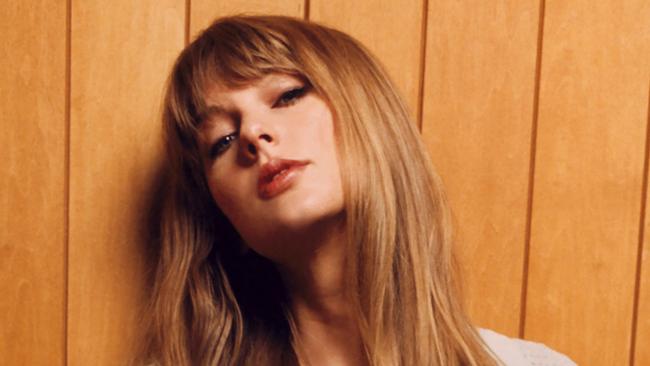
Album reviews for week of October 28, 2022:
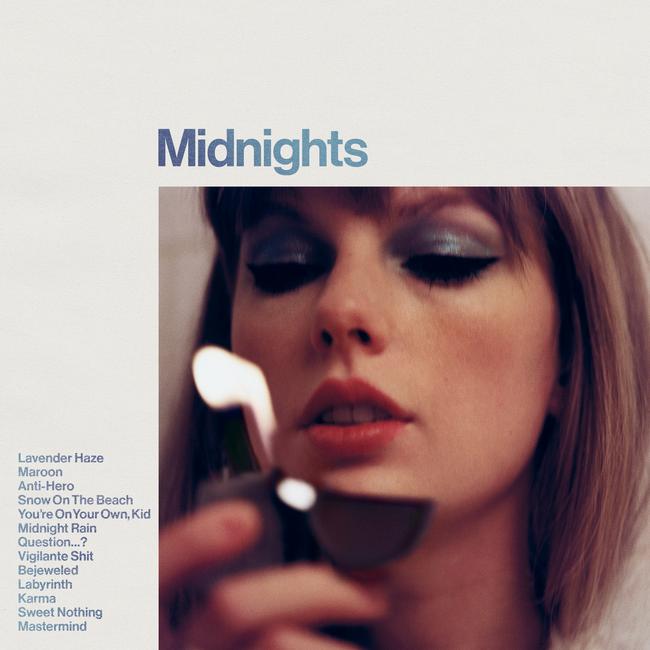
POP
Midnights
Taylor Swift
Republic Records
On her 10th album, Taylor Swift emerges from the country cabin that housed Folklore and Evermore, and steps back into the hyper-scrutinised, hyper-online grind of the 2022 pop star, albeit with sharpened writing chops. Conceptually heavy and backed by the full weight of a global marketing machine, Swift attempts – and almost succeeds – in creating an easily digestible, play-on-repeat pop record that neither overstays its welcome nor cashes in on the cheap production tropes plaguing the genre. With collaborator Jack Antonoff once again handling a bulk of studio duties, as well earning a considerable swag of co-writing credits, this set of 13 tracks sees the singer resume work on the synth-pop style last visited on 2019’s Lover, with sprinkles of her previous musical iterations. Bejeweled, Vigilante Shit and Midnight Rain hark back to the snark of Swift’s Reputation era, straddling the wide gamut of 20s electronica, with just a hint of the trap leanings from a decade previous. The folkier Sweet Nothing and driving You’re On Your Own Kid bring a touch of the Nashville sensibilities that Swift first made her name with, topped with a glazing of icy synths.
However, as with Swift’s previous two pop releases, Midnights is a front-loaded listen, with the opening singalong salvo of Lavender Haze, Maroon and Anti-Hero never quite topped for hooks or danceability. While her creative lane of choice is crystal clear, cuts Question ...?, Labyrinth and Karma, while well-produced, fail to bring anything to the table not bettered by the opening trio, and ultimately land on the “filler” pile. Even a collaboration with Lana Del Rey – an artist seemingly locked in a battle with Swift for the “most prolific pop star of the 20s” title – fails to produce results up to the standard of her previous collaborations, with the wispy Snow On the Beach sounding like an off-cut from the latter’s Honeymoon writing sessions. Midnights is a more enjoyable listen than Swift’s last few forays into this territory, and lyrically her musings on what keeps her awake at night are articulate and occasionally captivating. However, while Midnights does an impressive job of drawing listeners into Swift’s thoughts and (late night) dreams, it doesn’t quite deliver the hooks or the dancefloor anthems that made her earlier albums Red and 1989 staples of 21st-century listening habits for millions.
Alasdair Belling
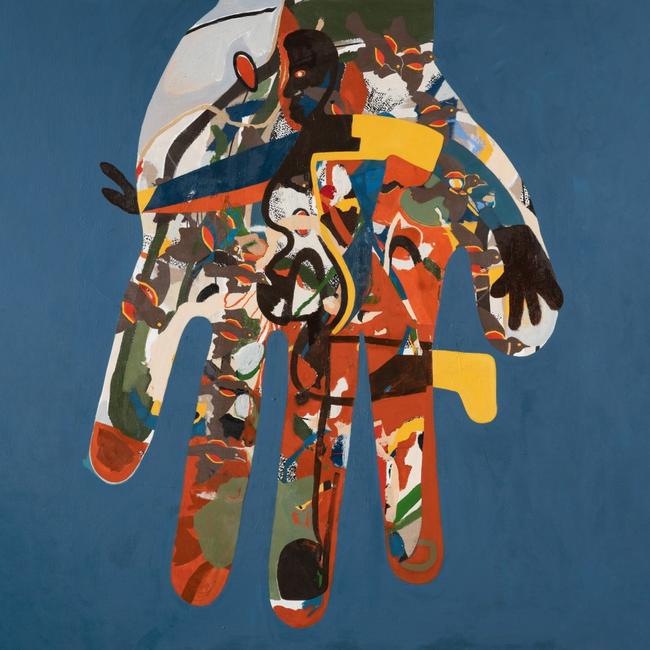
ELECTRONIC
Freakout / Release
Hot Chip
Domino Recordings
Hot Chip’s enduring sweet spot is where the pop and electronic worlds collide. Euphoria, escapism, passion – it’s all there wrapped in shiny, swirling production, brilliant songwriting and an energetic, playful aesthetic. Whereas 2019’s A Bath Full of Ecstasy revelled in pre-pandemic bliss, the British group’s eighth album confronts the “now normal”, warts and all. There’s the expected (and welcome) disco influences, house beats and joyous, piercing synth lines, but the group’s improvisatory studio approach has also fuelled introspection. Tracks such as Broken explore emotionally uncertain territory, as does the lower tempo Not Alone, yet both also deliver messages of hope. The shuffling beats of The Evil That Men Do, meanwhile, plumb darker depths, altering course halfway via an ominous keyline and rap by Canadian Cadence Weapon. Ironically, album opener Down is a bona fide party starter, its looped ’70s funk sample melding with pulsating beats and an urgent vocal. Catch Hot Chip on tour here in November.
Tim McNamara
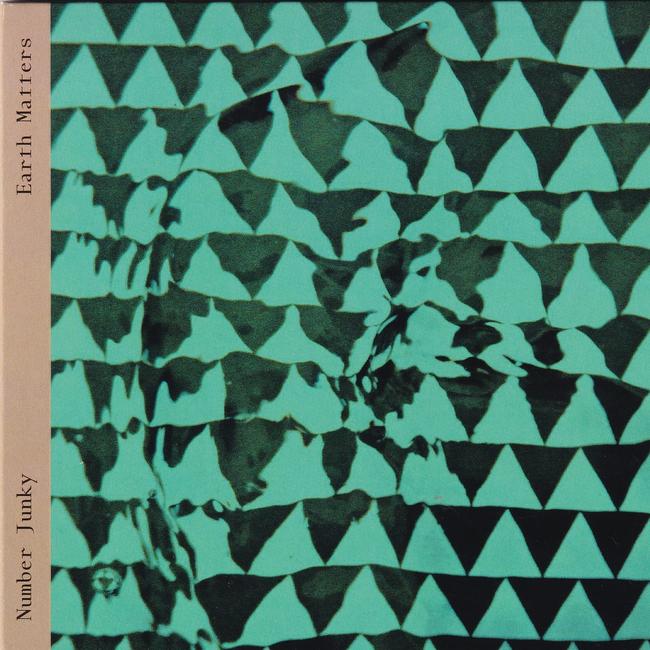
JAZZ
Earth Matters
Number Junky
Cool It! Records
In 2017 the brilliant Danish guitarist Kristian Borring and family settled in Perth. A prolific recording artist, his new album Earth Matters includes eight of his originals plus two Charlie Parker tunes. It’s an experimental work, exploring odd time signatures and complicated time-feels, placing it in many ways at the cutting edge. It’s a challenge for both the listener, and Perth musicians Zac Grafton (double bass) and Peter Evans (drums), who spent 12 months workshopping the music. Its success is built on their great ability to navigate busy rhythmic minefields, and also on the immaculate time inherent in Borring’s strong playing. Paradoxically, the album is also deeply traditional in that the warm sound Borring produces on his archtop guitar is highly reminiscent of past greats (Jim Hall et al), and there’s no sign of jazz/rock fusion which has long preoccupied comparable jazz guitarists. The extraordinary Cuban pianist Fabian Almazan, who was resident in Perth during Covid, guests on three tracks.
Eric Myers
Album reviews for week of October 21, 2022:
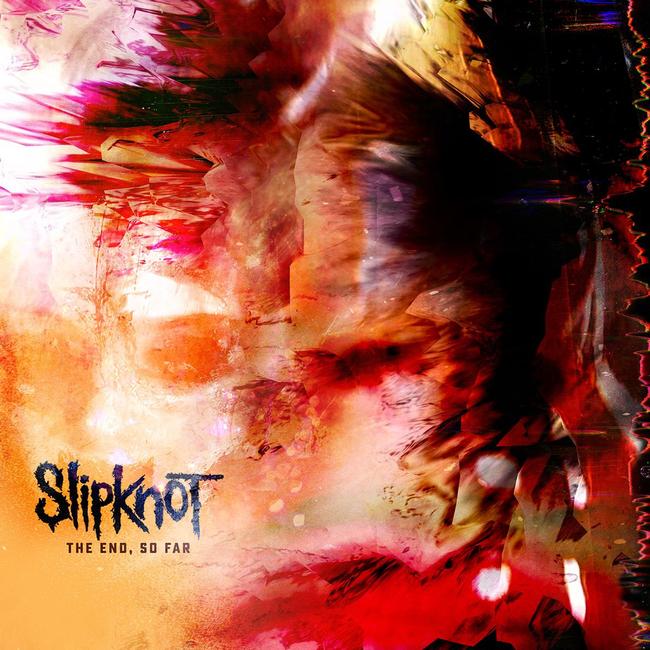
METAL
The End, So Far
Slipknot
Roadrunner
What legacy will Slipknot leave behind? This question is clearly on the collective brain of the nine-piece as it moves into both its seventh album — and 27th year of existence — while the US band seems wholly preoccupied with its own apocalypse. The album title notwithstanding, The End, So Far is both Slipknot’s final release for lifelong label Roadrunner and its first since the death of original drummer Joey Jordison last year. As well, there are track titles like The Dying Song and Medicine For the Dead, and frontman Corey Taylor promises that he would “die for you” on recent single Yen. The music of Slipknot has never been sunshine and rainbows at the best of times, but things feel especially morbid across the near-hour runtime here. The doomsday clock is ticking beneath every blasting drum beat, and a cloud looms over whatever may be left of the group’s future as the procession continues.
If there’s one takeaway from album No.7, however, it’s that Slipknot will not go gently into that good night. Not only are its alt-metal cuts as belligerent as ever – see lead single The Chapeltown Rag or the gnashing anti-consumerist Warranty – but its rabbit-hole detours grow curiouser and curiouser. Adderall is the band’s biggest curve-ball opener since 2004’s Prelude 3.0; it enlists an eerie choir and haunting piano for an ambitious slice of blackened psychedelia. Anchored by Taylor’s emotive lead vocal and the impressive fretwork of bassist Alessandro Venturella, the song is living proof of Slipknot’s subtle yet substantial approach to both adaptation and evolution. As for this band’s legacy? It will be one of defiance, perseverance and resolute determination. It dared to be different on its game-changing self-titled album in 1999, and that same bile and vitriol lingers today. The only difference? After decades of running through flames, Slipknot now finds itself walking through the valley of the shadow of death. That’s fine, of course: if you’ve followed the journey this far already, you’ll happily join the band at the beginning of the end. You’d probably die for them, too.
David James Young
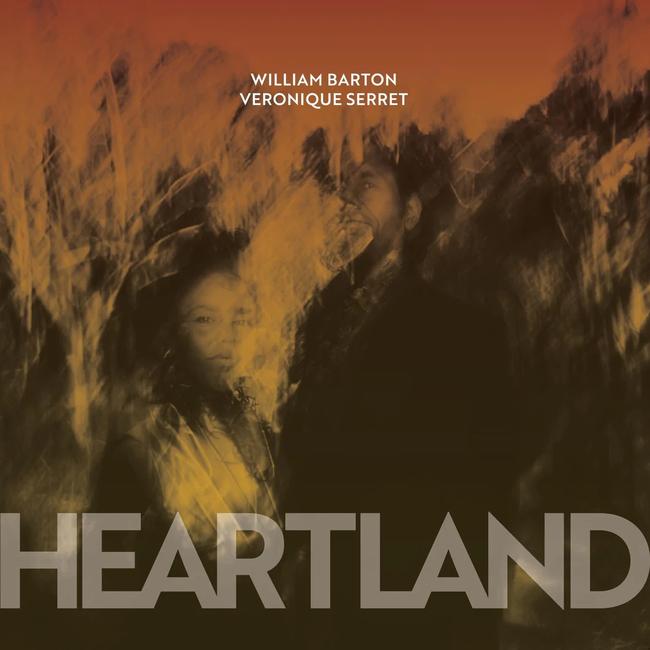
CLASSICAL/WORLD
Heartland
William Barton & Veronique Serret
ABC Classic
For more than 20 years, William Barton has brought his music to the world’s concert stages and recording studios, introducing many to the didgeridoo and the ancient culture of Australia’s First Nations people. In recent years he has been joined by the powerhouse violinist Veronique Serret and the pair perform frequently as an improvising and composing duo, each a perfect fusion and match for the other. This album is a kind of sampler of their work. It also serves as an introduction to their distinctive speaking and striking singing voices. In one of its nine tracks, William figures in a guitar fusion rap, his voice soaring into Gurrumul-like heights. Where there is text, the words are those of Aunty Delmae Barton, William’s much loved singer-poet mother. Her four-part poem Dreamtime Dawning creates the structure of this unusual, moving production, a paean to “the eternal dreamtime” and “mother country”. My main quibble about this album is that, at barely 42 minutes, it is far too short!
Vincent Plush
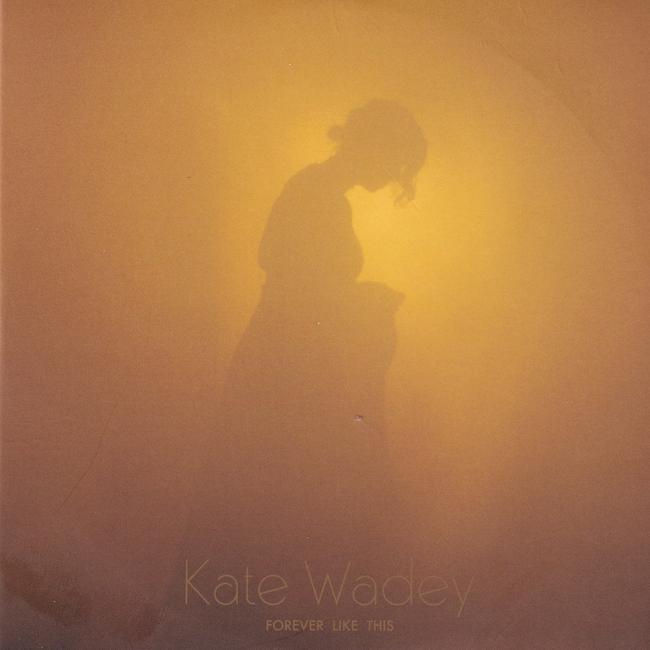
JAZZ
Forever Like This
Kate Wadey
Independent
This third album from singer Kate Wadey is a winner. Known previously as an interpreter of standards, Wadey now presents her own excellent compositions. Forever Like This highlights two essential pillars of the jazz tradition: the immortal swing feel; and the slow ballad exploring life and love. As winner of the 2019 Ken Weatherley jazz scholarship, Wadey represents the generation under 30, and she’s assembled some formidable talent here. They include Andrew Scott, whose classic piano style contributes inestimably to the music’s character, with Samuel Dobson (double bass), James Waples (drums), Chris O’Dea (tenor saxophone) and guitarists Peter Koopman and Arthur Washington. Each of nine originals is a collaboration between Wadey and some of these musicians plus others too numerous to list. Matt McMahon for example collaborates on the title track. Wadey’s sweet vocal sound emulates that of the late Janet Seidel, while her clever lyrics compare favourably with those of the highly accomplished Frances Madden.
Eric Myers
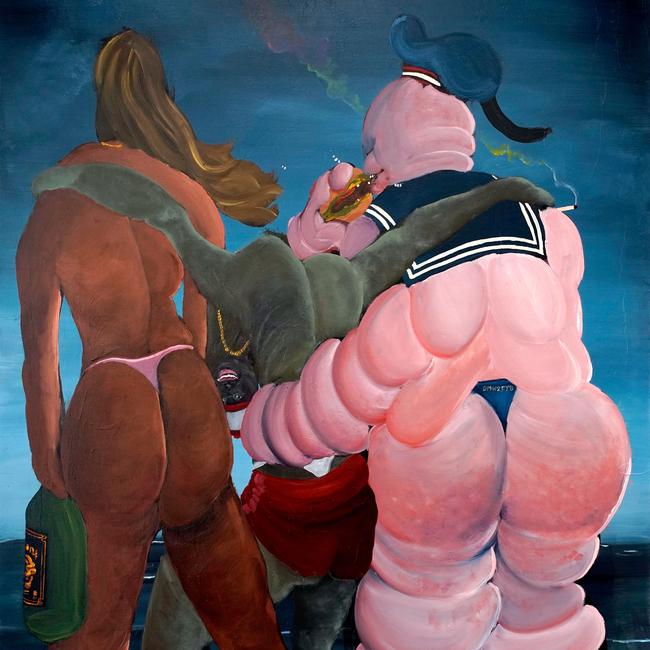
ELECTRONIC
Cry Sugar
Hudson Mohawke
Warp Records
Glaswegian producer Hudson Mohawke has climbed many peaks over his 20-odd year career – championing hip-hop, growing the trap sound alongside Canadian producer Lunice as TNGHT, and even producing for the likes of Kanye West and Drake. On Cry Sugar, his third solo album and follow-up to 2015’s Lantern, Ross Birchard cites the “twilight of our cultural meltdown” and “American decadence” to create a glorious hot mess that embraces hardcore, rave and hip-hop, and revels in high-energy, oft chaotic sonics. The serene string, percussion and vocal combo on opener Ingle Nook is a ruse for what follows: the frenetic, pounding bass and gospel-tinged vocals of Intentions. From there, the intensity rarely dips. Dance Forever is a brooding chunk of bass, whirring synths, looped vocals and the crispest of beats, creating an album standout; Tincture ebbs and flows between glitchy electronica and atmospheric breakdowns. There’s a lack of cohesion here that appears intentional; those who can keep up with HudMo’s feverish pace are ultimately rewarded.
Tim McNamara
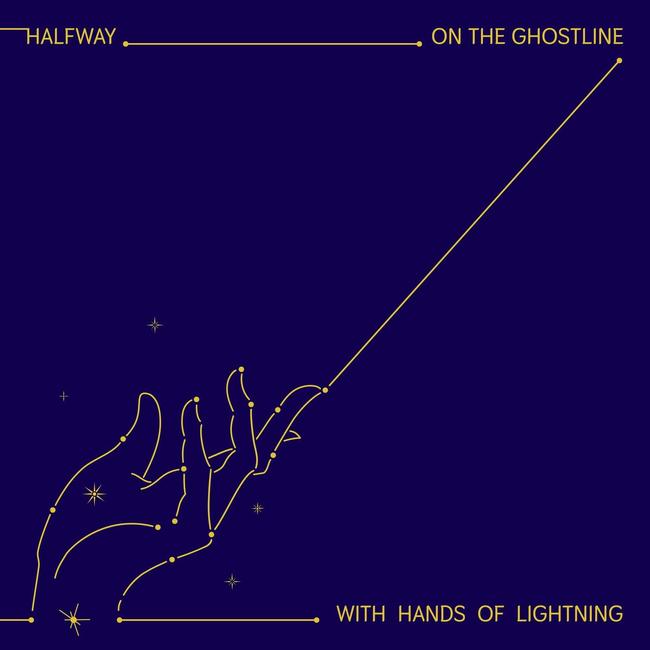
ALT-COUNTRY
On the Ghostline, with Hands of Lightning
Halfway
ABC Music
The late Grant McLennan once gently protested when The Go-Betweens were nominated for an ARIA: “I may be a contemporary adult,” he said, “but I’m not adult contemporary.” It’s a wry gripe his fellow Queenslanders (and one former bandmate) in Halfway may appreciate. The septet might offer a more refined, mature sound than most rock bands on the circuit, but to be given that dreaded genre tag is akin to a death rattle. If album No.8 showcases anything, it’s a flowing undercurrent of vitality. On the Ghostline... maintains Halfway’s decades-long track record of twinkling, warm and intimate songwriting. Central is its triple-guitar prong, muscular but never forceful or aggressive. The dozen songs are further accentuated by flourishes of spaced-out keyboards and bristling percussion, while John Busby’s road-weary, all-knowing voice guides the way via his heartfelt, gently stoic lyricism. A deeply rewarding album, Ghostline strikes a unique balance between having plenty to say and nothing to prove.
David James Young


To join the conversation, please log in. Don't have an account? Register
Join the conversation, you are commenting as Logout